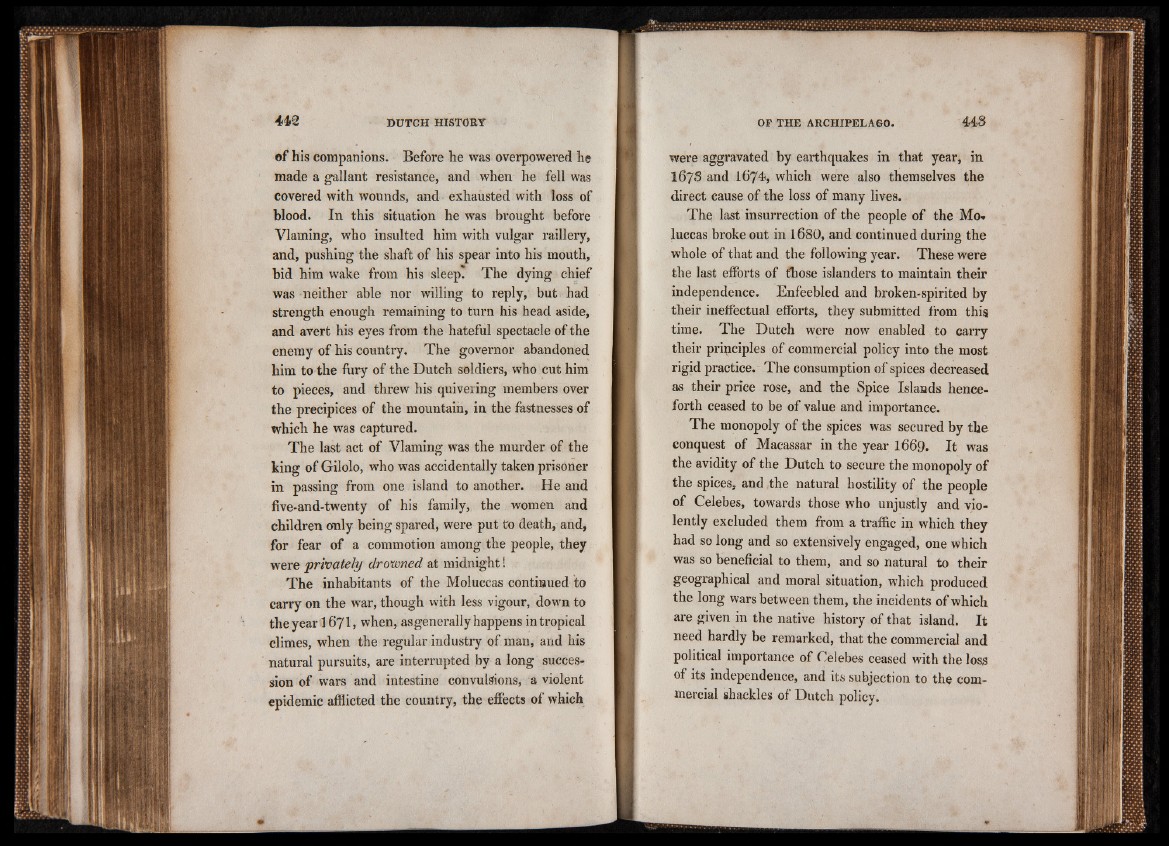
of his companions. Before he was overpowered he
made a gallant resistance, and when he fell was
covered with wounds, and exhausted with loss of
blood. In this situation he was brought before
Vlaming, who insulted him with vulgar raillery,
and, pushing the shaft of his spear into his mouth,
bid him wake from his sleep. The dying chief
was neither able nor willing to reply, but had
strength enough remaining to turn his head aside,
and avert his eyes from the hateful spectacle of the
enemy of his country. The governor abandoned
him to the fury of the Dutch soldiers, who cut him
to pieces, and threw his quivering members over
the precipices of the mountain, in the fastnesses of
which he was captured.
The last act of Vlaming was the murder of the
king of Gilolo, who was accidentally taken prisoner
in passing from one island to another. He and
five-and-twenty of his family, the women and
children only being spared, were put to death, and,
for fear of a commotion among the people, they
were privately drowned at midnight !
The inhabitants of the Moluccas continued to
carry on the war, though with less vigour, down to
theyear I 6 7 I, when, as generally happens in tropical
climes, when the regular industry of man, and his
natural pursuits, are interrupted by a long succession
of wars and intestine convulsions, a violent
epidemic afflicted the country, the effects of which
were aggravated by earthquakes in that year, in
1675 and 1674, which were also themselves the
direct cause of the loss of many lives.
The last insurrection of the people of the Mo-,
luccas broke out in 1680, and continued during the
whole of that and the following year. These were
the last efforts of those islanders to maintain their
independence. Enfeebled and broken-spirited by
their ineffectual efforts, they submitted from this
time. The Dutch were now enabled to carry
their principles of commercial policy into the most
rigid practice.- The consumption of spices decreased
as their price rose, and the Spice Islands henceforth
ceased to be of value and importance.
The monopoly of the spices was secured by the
conquest of Macassar in the year I669. It was
the avidity of the Dutch to secure the monopoly of
the spices, and the natural hostility of the people
of Celebes, towards those who unjustly and violently
excluded them from a traffic in which they
had so long and so extensively engaged, one which
was so beneficial to them, and so natural to their
geographical and moral situation, which produced
the long wars between them, the incidents of which
are given in the native history of that island. It
need hardly be remarked, that the commercial and
political importance of Celebes ceased with the loss
of its independence, and its subjection to the commercial
shackles of Dutch policy.